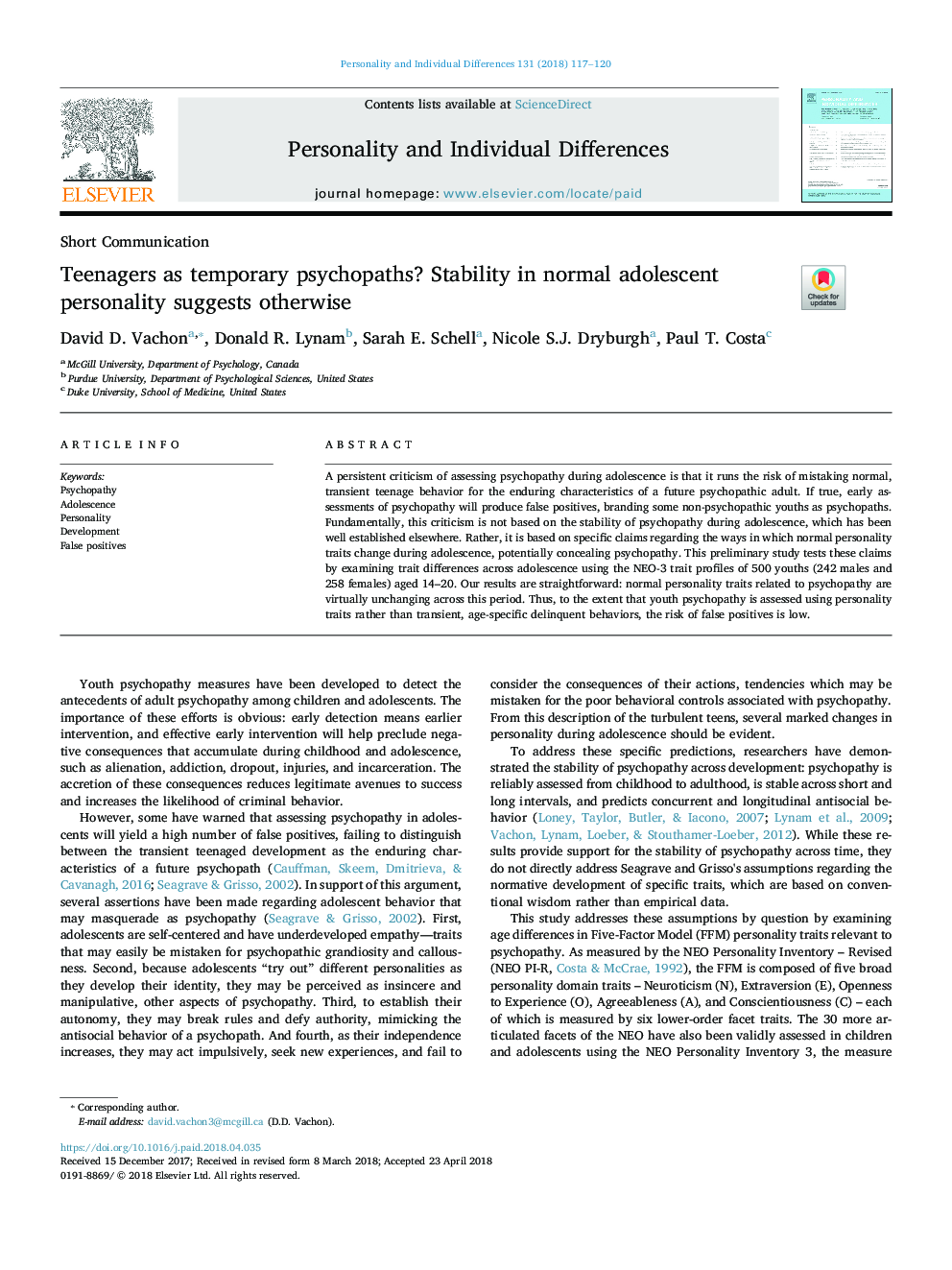| Article ID | Journal | Published Year | Pages | File Type |
|---|---|---|---|---|
| 7248612 | Personality and Individual Differences | 2018 | 4 Pages |
Abstract
A persistent criticism of assessing psychopathy during adolescence is that it runs the risk of mistaking normal, transient teenage behavior for the enduring characteristics of a future psychopathic adult. If true, early assessments of psychopathy will produce false positives, branding some non-psychopathic youths as psychopaths. Fundamentally, this criticism is not based on the stability of psychopathy during adolescence, which has been well established elsewhere. Rather, it is based on specific claims regarding the ways in which normal personality traits change during adolescence, potentially concealing psychopathy. This preliminary study tests these claims by examining trait differences across adolescence using the NEO-3 trait profiles of 500 youths (242 males and 258 females) aged 14-20. Our results are straightforward: normal personality traits related to psychopathy are virtually unchanging across this period. Thus, to the extent that youth psychopathy is assessed using personality traits rather than transient, age-specific delinquent behaviors, the risk of false positives is low.
Related Topics
Life Sciences
Neuroscience
Behavioral Neuroscience
Authors
David D. Vachon, Donald R. Lynam, Sarah E. Schell, Nicole S.J. Dryburgh, Paul T. Costa,
